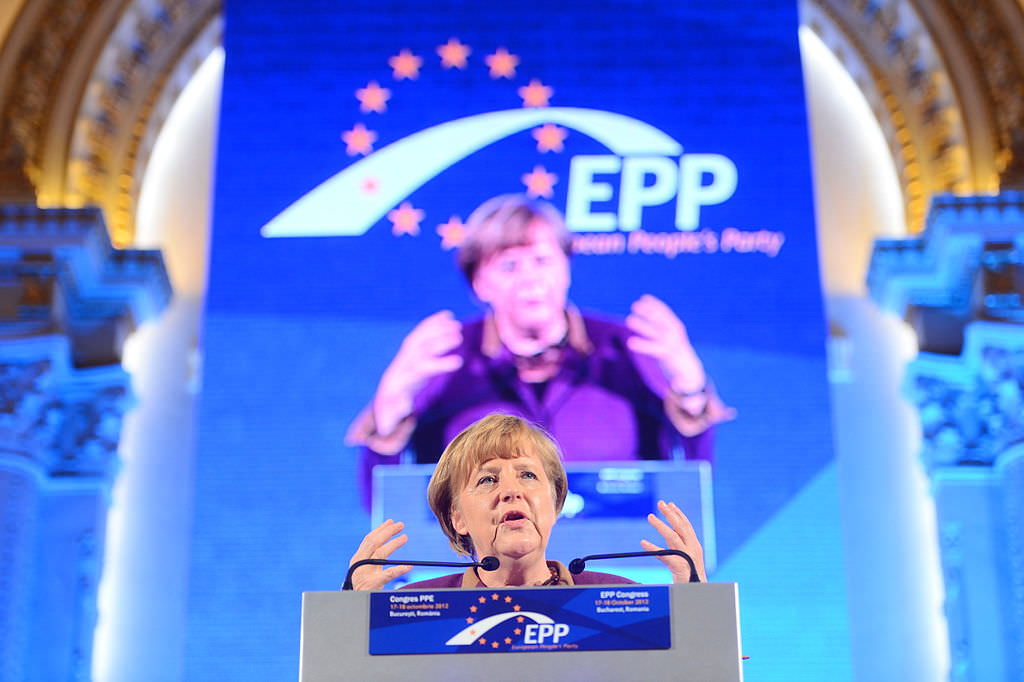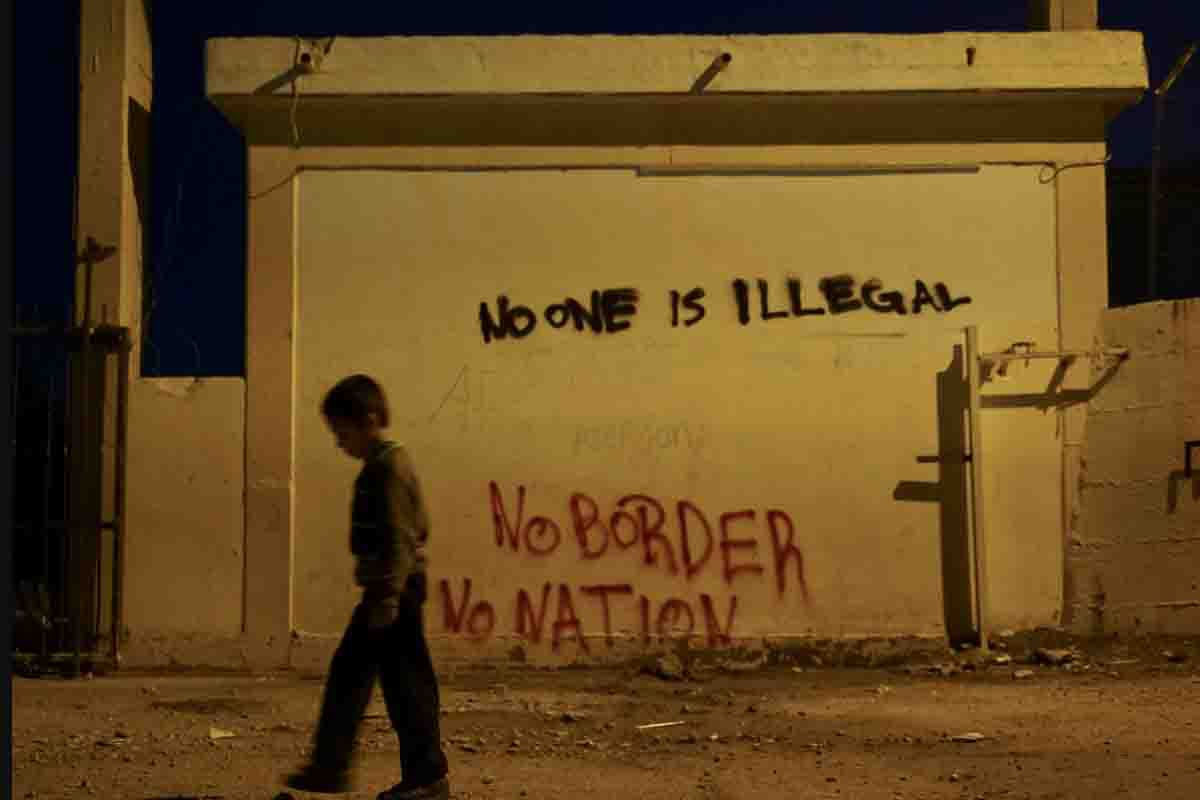Free Speech
Tutors and Examiners of the Mind: German Media and the Migrant Crisis
In the wake of the Cologne crisis (as we can now rightly call it — again, without exaggeration) many worrying trends in German society came to light.

A few years ago, remarking on the more aggressive federalist tendencies within the European Union, Mikhail Gorbachev observed that the most puzzling development in European politics since the end of the Cold War was the “apparent determination of politicians to recreate the Soviet Union in Western Europe.” Today we might update this to say that the most puzzling development in European politics is the apparent determination of the leaders of a unified, liberal, and democratic Germany to recreate and otherwise emulate the propagandist methodologies of East Germany and National Socialist Germany — certainly in terms of their bridling of the press and directing of the headlines away from dissent and towards a prefabricated officially-approved narrative (and, unlike Mr Gorbachev, we could not heartily be accused of exaggeration).
In the wake of the Cologne crisis (as we can now rightly call it — again, without exaggeration) many worrying trends in German society came to light. Few of them were more worrying than revelations regarding the sheer scale of the censorship and self-censorship of the German media when it came to reporting the events of that night in particular, and the migrant issue in general.
The problems here were abbreviated recently and efficiently in remarks made by Wolfgang Herles, a grandee of German broadcasting and former head of the Bonn division of ZDF (Zweites Deutsches Fernsehen, effectively the German state broadcaster). In a story which itself, ironically, went little-reported in the wider European media, Dr Herles commented that publicly-funded broadcasters in Germany, including ZDF, routinely took orders from the Federal government in line with an ideologized vision of multicultural harmony and a pan-European, pro-immigration agenda. He said:
We have the problem that we are too close to the government. The topics we cover are determined by the government. But many of the topics the government wants to stop us from reporting are more important than the topics they want us to cover. We must, we are told, report in such a way that serves Europe and the common good. Today we are not allowed to say anything negative about the refugees. This is government-led journalism, and this leads to a situation in which the public loses their trust in us. This is scandalous.
Consider those remarks and let them percolate a while. These aren’t the warnings of a dissident Russian journalist bravely running the risk of death by radioactivity while speaking out from London exile (in which case we’d shrug our shoulders and ask: “What does he expect? It’s the Kremlin”) — these are the warnings of the former chief of the state broadcaster in Europe’s largest and (theoretically) most progressive democracy.
Dr Herles’ concerns find an echo in the curious case of Claudia Zimmermann, a journalist with WDR (another public broadcaster, headquartered in Cologne), who confirmed in an interview with Dutch radio that reporters in Germany have been instructed, in simple terms, to redact the nasty bits whenever migrants are mentioned and present the news from a purely migrant-friendly perspective. This statement she later hastily retracted under rather odd circumstances, claiming she was talking “nonsense” and placed under intolerable strain by “nerves” and the pressure of the interview. (It’s worth noting that Zimmermann is a veteran reporter with a quarter of a century’s worth of experience).
It’s hard to find good cause to disagree with the opinion of former Federal Minister of the Interior Hans-Peter Friedrich, who says that the publicly-owned media in Germany is now a “cartel of silence” which refuses to report the full extent of the migrant problem (specifically, the inability of so many young male Muslim migrants to integrate properly into Germany society or at all) for fear of arousing Islamophobia.
We could also mention Catholic-conservative writer Matthias Matussek, who made the mistake of speculating on his Facebook page that semi-regular Islamist massacres in France might cause the Germans to question their country’s open-borders immigration policy (not exactly a dangerous opinion, but enough to cost him his job at Die Welt). Der Spiegel, meanwhile, has heavily restricted or closed altogether all online comments threads about Islam and immigration (a move replicated by the Guardian in Britain). In Germany- not to mention elsewhere in Europe- significant sections of government and the left-liberal media seem to be agitating for precisely the same goal as the Islamists: That is, the immensely satisfying hush which follows the abolition of criticism. All extremisms, secular or religious, seek, ultimately, silence.

There are of course sound historical reasons why Germany of all countries might be especially wary of media sorcery and its power to rouse the mob against any given racial or religious minority — but one wonders why this near-pathological devotion to tolerance isn’t applied more consistently and with an even hand.
Whereas Islamophobia is now the ultimate indictment, the unanswerable charge to end all charges, the attitude of the German government towards, say, anti-Semitism displays no such reflex-action urge to defend the victims from criticism: Indeed, sometimes the Old Hatred receives official approval. Two incidents from many are instructive. In the summer of 2014, at the height of the Gaza War, police officers in Frankfurt very kindly allowed anti-Israeli demonstrators the use of the megaphone on their police van, while in 2015, in Wuppertal, three Palestinian-German men were given suspended rather than custodial sentences after a Judge held that their botched attempt to burn down the city’s synagogue was motivated not by anti-Semitism but only a desire to “bring attention to the Gaza conflict” (this, we might add, was the city’s second synagogue: The Nazis, more efficient than their latter-day leftist-Islamist successors, actually succeeded in burning down the first one in 1938).
Thus while a resurgent anti-Semitism in Germany is all-too-often written an official excuse note and assigned to political blowback from Israel’s perceived transgressions, Islamophobia by contrast is portrayed at the highest levels as an existential threat to civilization — up there with a flesh-eating viral pandemic or a Cretaceous-style impact event. And publicly-funded German broadcasters, as we now know, have been instructed to indulge and nurture the narrative accordingly.
Germany’s own media has pulled it well and truly through the looking glass. When migrants of the Muslim faith run riot in city after city, urge calm and tell the people the real problem is Islamophobia. When migrants assault Jews, urge calm and tell the people the real problem is Islamophobia. When mass sexual predation is perpetrated in public by migrants from cultures which preach contempt for women and western values, urge calm and tell the people the problem is Islamophobia (and, while you’re at it, issue Saudi-style behavioural guidelines to the women so they won’t be so damned careless when going out in public again).
Go on telling people the opposite of what they know to be true and, despite all evidence to the contrary, maybe one day they will grow so dizzy and confused as they gaze over the chasm between reality and the neutered headlines that they will start to believe you. Even dissonance serves an end. William Blake’s Urizen (the dark spirit of public order and social control, a sort of wispy version of Dr Goebbels) counseled poetically that the key to successful propaganda is constant contradiction:
Smile when they frown, frown when they smile,
When a man looks pale with labour and abstinence, say he looks healthy and happy
Say he smiles if you hear him sigh (if pale, say he is ruddy)
So reduce all to our will, as spaniels are taught with art.¹
More than a century before Blake anticipated the mindgames of totalitarianism in these words, John Milton wrote in his Areopagitica that the worst crime the state could commit against a man was “not to count him fit to print his mind without a tutor or examiner.” Germany in all its incarnations these past eighty years has had its fair share of them: Men and women determining upon what is and what is not fit to print, fit to speak, fit to think — sometimes, in the darkest times, determining who is and who is not fit to live.
It seems they are still with us, even in a democratic age, these tutors and examiners of the mind, and that certain tendencies in German history are not yet dead.
References
- Blake, William. Vala, Or, The Four Zoas. Oxford: Clarendon Press, 1963.






